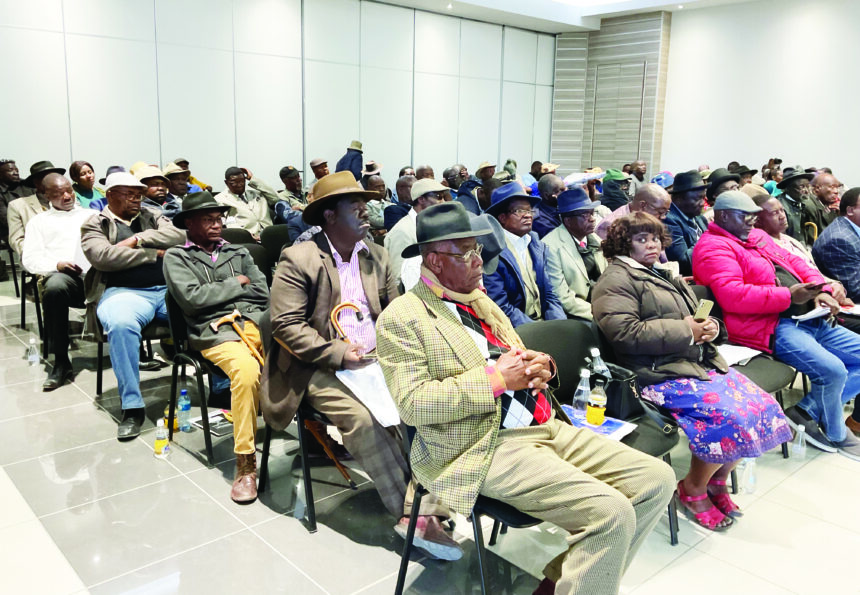Isai Sipunga
Vice President Netumbo Nandi-Ndaitwah highlighted geopolitical tensions such as the conflicts between Russia and Ukraine and Israel and Palestine as obstacles to the ongoing genocide negotiations between Namibia and Germany.
During her opening statement at the 2024 Chiefs’ Forum last week, Nandi-Ndaitwah emphasised how these global conflicts are not conducive to the negotiations.
She drew parallels with the situation in Gaza, describing it as a genocide committed by Israel against Palestinians while the international community remains ineffective.
Banking hopes on external organisations for a genocide committed over 120 years ago by Germany, now an economic power, is challenging in the current polarised international political order, she said.
Nandi-Ndaitwah urged appreciation for the progress made in negotiations, and identified areas needing improvement.
Acknowledging that the consensus reached so far is imperfect and does not meet all the expectations of the affected communities and Namibian citizens, she emphasised the principle of compromise in negotiations. The German government agreed to pay €1.1 billion in reparations to the families of the genocide victims.
Due to widespread dissatisfaction with this amount, the Namibian government is working to renegotiate it.
The Vice President sees this as a positive step, especially given the geopolitical tensions in other parts of the world. Speaker of the National Assembly Peter Katjavivi urged chiefs and supporting staff to remain patient and continue participating in the discussions, recognising the gravity and sensitivity of the 1904-1908 genocide.
The Vice President’s statement faced scepticism from various groups, including the Rally for Democracy and Progress (RDP), the Ovaherero Traditional Authority (OTA), and the Nama Traditional Leaders Association (NTLA).
RDP president Mike Kavekotora criticised the VP’s statement as factually misrepresentative, misleading and manipulative. He compared it to the initial stages of the Joint Declaration, where ministers misinformed chiefs and affected communities about the negotiations.
Kavekotora outlined several criticisms:
“Chiefs were politically and manipulatively engaged before parliamentary discussions, with a promise of feedback from minister Frans Kapofi. The Swapo VP failed to inform chiefs about significant German resolutions. Germany’s acknowledgement of genocide is seen as dehumanising and factually misrepresented,” Kavekotora said.
He added: “The claim that parliament resolved to have two parties for genocide negotiations is false. The government has failed to establish a basis for determining reparations. Negotiating for reconstruction and reconciliation programmes is viewed as a way for the government to avoid its responsibilities.”
He went on to say: “The policy that affected communities in the diaspora will benefit only if they return to Namibia is considered insensitive.”
A representative of the Ovaherero Traditional Authority addressed the media and supporters regarding the genocide negotiations between Namibia and Germany, criticising the government for excluding them from consultations and bilateral negotiations, deviating from the 2006 National Assembly Resolution, which called for direct engagement with the German government in the presence of the Namibian government. The OTA and Nama communities rejected the government-led processes, demanding direct negotiations similar to those held by Jewish communities with Germany after the Holocaust.
They accused the government of generalising the genocide issue to include other communities, diluting their specific grievances. The OTA condemned the Vice President’s meeting as another act of marginalisation and exclusion, calling for support from sympathetic individuals worldwide.



